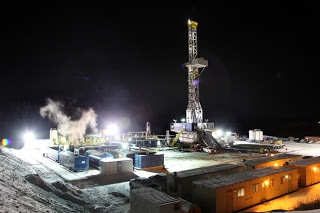Indigenous Women, Fracking, and Violence
by Kelly Yu
“Oil company workers are not accountable to the community. They can treat people however they want because they think they are untouchable” – Cedar Gillette, domestic violence counselor in New Town, North Dakota (source)
North Dakota may reap huge economic gains for both Big Oil and the Midwest economy, but the consequences that have followed the oil boom have endangered women–Indigenous women in particular–and have placed them at an increased risk of domestic violence and crime.

The increase in demand for oil workers by the North Dakota fracking industry has led to an influx of young men seeking employment in various oil towns throughout the state. While crime is in no way exclusive to these growing towns, a correlation can be drawn between the population boom in several oil cities and the increase in crimes against women. After their own respective oil booms, Dickinson, North Dakota, saw a 300% increase in sex crimes and Bradford County, Pennsylvania saw an increase in unknown rapes. Some women now carry tasers to protect themselves from oil workers, and workers at the Abuse & Rape Crisis Center in Bradford County have noticed that many of town’s domestic violence cases involved individuals linked to the fracking industry. Finally, many cities that have experienced an oil boom have also seen an increase in the human trafficking of Native women.
While many argue that fracking in itself is not responsible for the increase in criminal activity in oil cities, the available data linking the fracking industry and violence against women warrants attention. Studies find that 80% of rapes against Indian women are by non-native men, yet only after recent reauthorization of the Violence Against Women Act in March 2013 have tribal courts been given criminal jurisdiction over non-Indians, such as oil workers, for domestic or sexual crimes on tribal land.
For more information on fracking and how to join the movement against it, click here.
(Photo source: annarbor.com)
